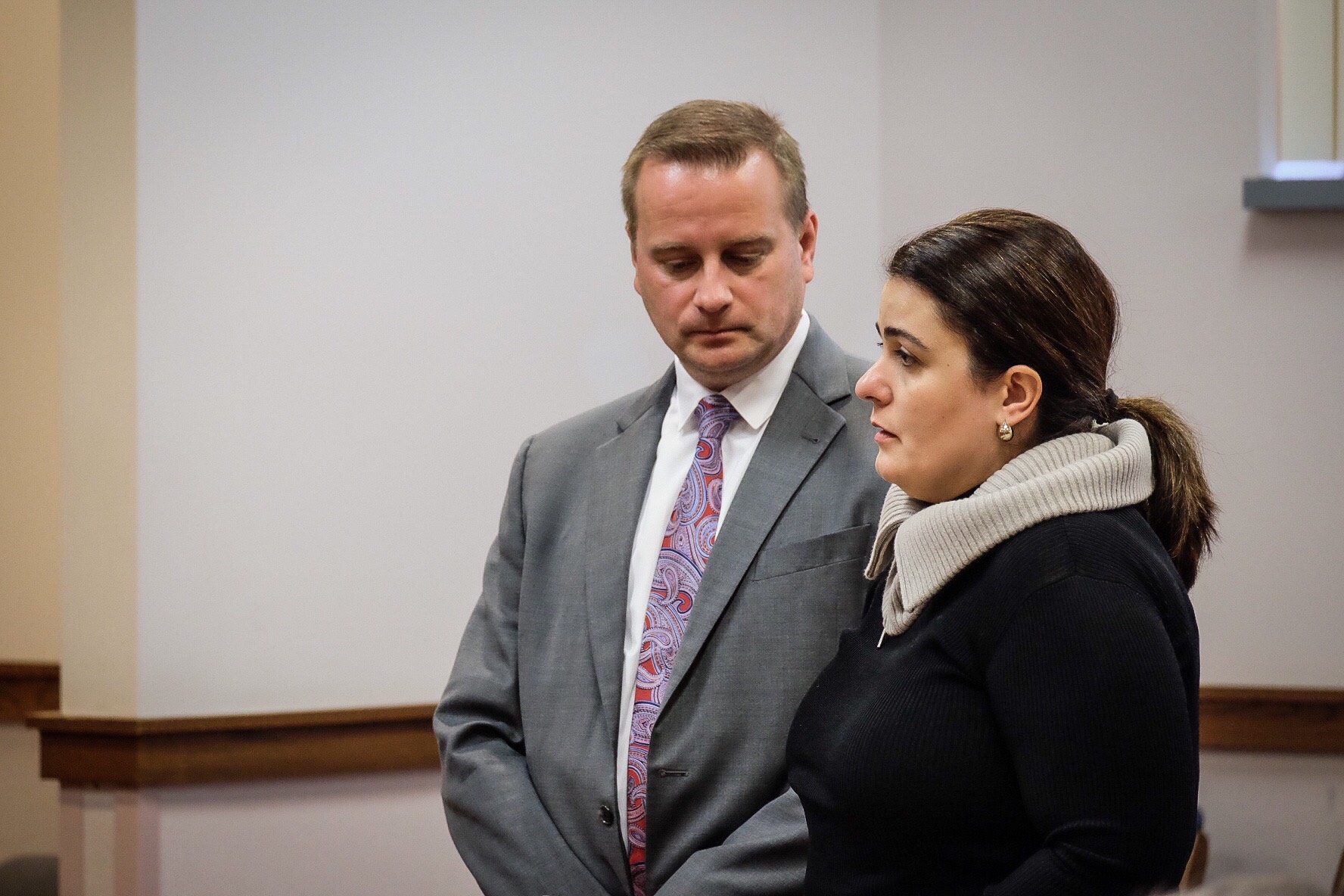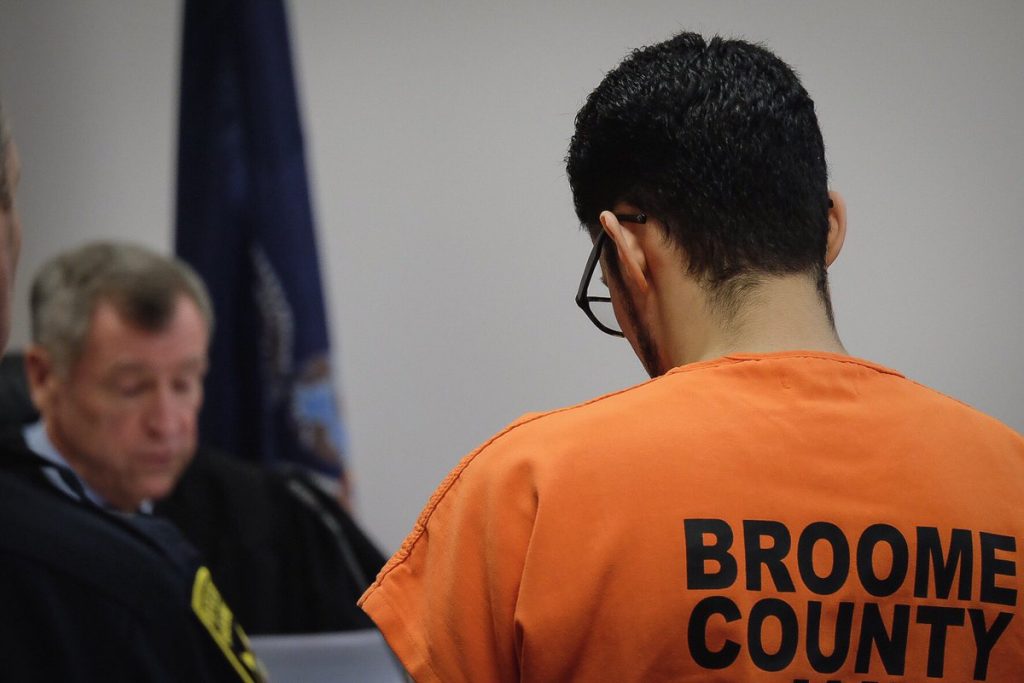About six months after freshman Joao Souza was fatally stabbed in his dorm, former Binghamton University student Michael Roque was sentenced to 20 years to life in prison on a second-degree murder charge.
Roque, 20, of Massapequa, New York, was sentenced before Judge Kevin Dooley in Broome County Court on Tuesday morning. He received the maximum sentence, and will not be eligible for parole until he is 40. In the meantime, he will be locked in a maximum-security prison.
Souza, 19, was stabbed in his dorm room in Windham Hall of Mountainview College on April 15. According to police, Roque fled on foot after stabbing Souza, first in Souza’s bathroom and then in his dorm room, in front of his roommates. Roque was apprehended in his dorm room in Hunter Hall of Mountainview College after a 20-hour manhunt. He was asleep when police entered his dorm room to arrest him.

Roque, 20, maintains his innocence in the fatal stabbing of freshman Joao Souza.
Cornwell described the crime scene as “gruesome,” and said many of Souza’s belongings couldn’t be returned to his family because they were covered in blood.
“There was so much blood, and it smelled like a butchery,” Cornwell said. “There was blood over everything, and you could hear it crunch on the floor.”
Cornwell also provided a motive in the crime. He said Roque had previously dated a female BU student while in high school, and had transferred to the University after he learned she attended school there. According to Cornwell, when Souza and the female, who remains unidentified, began dating, Roque killed Souza out of jealousy.
“Joao’s last breaths were saying he was sorry,” Cornwell said. “Sorry for having a relationship with a young girl who went to school with him.”
Although Souza’s family members, who reside in Brazil, didn’t attend the sentencing, they sent a representative to read a statement. In the statement, Souza’s parents describe him as a caring older brother and loving friend.
Souza’s parents also wrote that Roque should accept responsibility for the death of their son, and stated his crimes are “an inhuman act that cannot be excused.”
“Joao, the joy of our lives, is no more,” the statement read. “There is no way to explain to you the pain your actions cause us every day.”

Broome County District Attorney Steve Cornwell, left, stands with a representative from Souza’s family as she reads a statement prepared by Souza’s parents.
After he was indicted in May, Roque pleaded not guilty to the charge. At an arraignment on Sept. 6, however, he was expected to plead guilty. During that court appearance, Roque surprised everyone, including his own lawyer, when he refused to enter the plea. The next day, Roque appeared in court again after requesting a second arraignment. He pleaded guilty to the charge and said he’d panicked at the arraignment on Sept. 6.
But during a court appearance on Nov. 2, Roque went back on his plea and said his attorney pressured him into pleading guilty. He said he found Souza’s body, but didn’t commit the murder, and was “backed into a corner” with his plea deal. At his sentencing on Tuesday, Roque maintained his innocence, entering into the court record a 10-page speech that he said contains evidence proving he didn’t stab Souza. On Tuesday, Roque also said he had chased the real suspect, but didn’t know their name.
Roque also requested a new lawyer during his appearance on Nov. 2, which was scheduled when he sent a letter to Dooley expressing concerns about his legal counsel. It is not the first time Roque has voiced issues with his defense lawyer, David Butler. At his arraignment on Sept. 6, he accused Butler of failing to meet with him regularly, which Butler denied. At his sentencing on Tuesday, Butler declined to voice any arguments on Roque’s behalf, citing his “relationship” with Roque.
In court on Tuesday, Dooley said he was concerned by Roque’s lack of remorse for Souza’s death, and that Roque’s inability to accept responsibility for his crimes led Dooley to impose the maximum sentence.
“In my view, it’s a classic case of jealousy and vengeance,” Dooley said. “Perhaps [there was] remorse after the fact, but it was remorse based entirely upon you coming to the realization that you’ve ruined your life and you’re facing years in prison, so you’re now trying to undo that.”
Following the sentencing, Cornwell said Roque was given every opportunity to show his remorse and was rightfully sentenced.
“It was a difficult case,” Cornwell said. “He tried to make a mockery out of the proceedings.”



